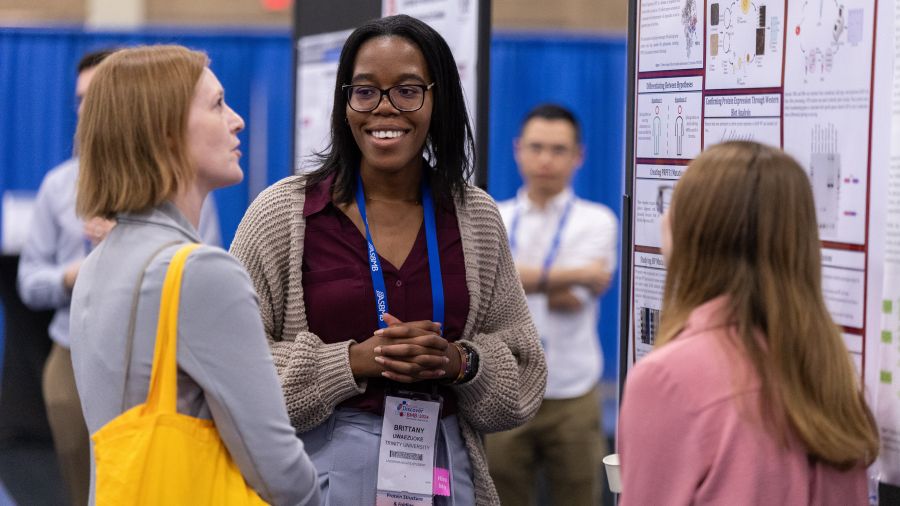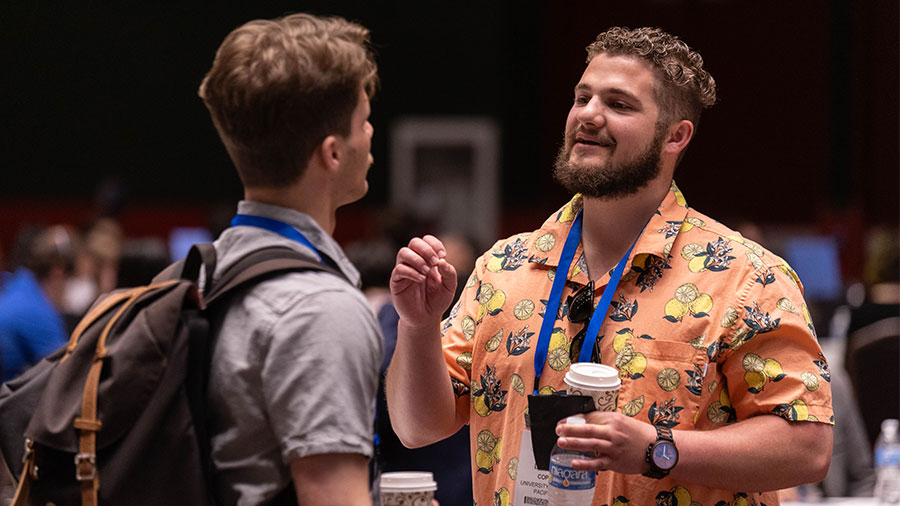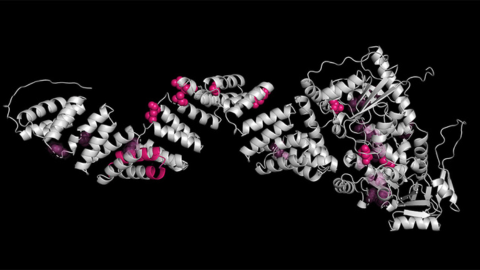So, you went to a conference. Now what?
Conferences are a common part of the academic experience for everyone from students to senior researchers. These events are typically jam-packed with talks, poster sessions, networking and maybe even your own moment on the stage to present your work. Once you return to normal lab life, how can you make use of everything you learned?
This week, I have a few tips for taking advantage of time spent at conferences. Maybe you attended Discover BMB last month or have another conference coming up and can leverage these tips to make the most of those experiences.

Keeping track of what you learned
Conferences can be information overload. There are so many lectures, posters, special sessions — it can be challenging to keep track of it all, especially once you leave and resume normal life.
I often found sources of inspiration at conferences, whether it be a new technique I wanted to try or a new research angle I hadn’t thought of before. To remember these ideas, I would write up a post-conference summary document within the first week or so of coming back.
In this document, I would brain-dump any new ideas or points of inspiration and make notes about people I met, new research tidbits I learned or other conclusions. I would also use the conference program to copy down the titles and presenters of posters or talks that I particularly enjoyed or that stuck with me. This helped me not only commit some of this information to memory, but it also gave me something to refer back to if I ever needed.
If a full-blown summary document isn’t your cup of tea, you could also try to leverage your reference manager software/program (if you use one) to add specific abstracts to your library. That way you’ll have a record of them to use in the future. Or, if you kept the conference program, making notes or highlighting certain titles and abstracts can be a good way to keep track of the points important to you.
Lastly, if you presented your work, try to think about the feedback you got and how you can use it to make your research better. Did someone ask a question you weren’t sure about? Write it down so you’re prepared for the next time or start thinking about what experiments may address it. Use any constructive criticism or positive feedback to your advantage.
Staying in touch
With researchers stopping by your poster and others talking to you about potential collaborations, you meet a lot of new people at a conference. They’re a great opportunity to network prior to graduating or when looking for new opportunities.
If you met anyone in particular that you want to stay in touch with, think about reaching out to them in the weeks after the conference. Sending a simple email saying it was nice to meet them or to follow up on any conversation points, especially while your interactions are still fresh, can be a good way to forge new professional relationships.
Connecting on LinkedIn can also be a simple way to stay up to date with new collaborators and conference friends. But if you are graduating in the next year or so, I highly recommend sending an email instead of using LinkedIn to reach out to anyone you may be looking to work with in the future.
Evaluate your conference needs
I would often leave conferences thinking about the next one. There were some conferences I went to year after year, so thinking about what I learned and how my research could fit into the overall program helped me better prepare an abstract to submit the next time around.
I also tried to remember what worked and didn’t work for me at a particular conference so I could make better use of my time in the future. For example, I’ve learned that I really stop retaining information after so many hours of talks, so I’d try to break up my time by hopping to a poster session (if one was going on) or taking a quick break to stay fresh. Figuring out what works for you can make sure you’re enjoying the conference experience.
For anyone coming back from Discover BMB or another scientific event, I hope these tips help you make the most of the conference time!

Enjoy reading ASBMB Today?
Become a member to receive the print edition four times a year and the digital edition monthly.
Learn moreFeatured jobs
from the ASBMB career center
Get the latest from ASBMB Today
Enter your email address, and we’ll send you a weekly email with recent articles, interviews and more.
Latest in Careers
Careers highlights or most popular articles

Upcoming opportunities
Friendly reminder: May 12 is the early registration and oral abstract deadline for ASBMB's meeting on O-GlcNAcylation in health and disease.

Sketching, scribbling and scicomm
Graduate student Ari Paiz describes how her love of science and art blend to make her an effective science communicator.

Embrace your neurodivergence and flourish in college
This guide offers practical advice on setting yourself up for success — learn how to leverage campus resources, work with professors and embrace your strengths.

Upcoming opportunities
Apply for the ASBMB Interactive Mentoring Activities for Grantsmanship Enhancement grant writing workshop by April 15.

Quieting the static: Building inclusive STEM classrooms
Christin Monroe, an assistant professor of chemistry at Landmark College, offers practical tips to help educators make their classrooms more accessible to neurodivergent scientists.

Unraveling oncogenesis: What makes cancer tick?
Learn about the ASBMB 2025 symposium on oncogenic hubs: chromatin regulatory and transcriptional complexes in cancer.

